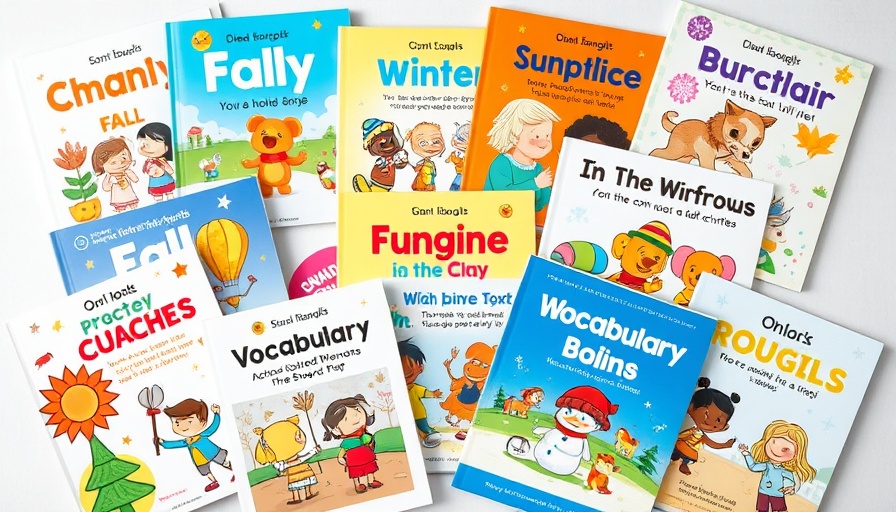
Unlocking Literacy for Nonverbal Students: A Journey Begins
Reading is a critical skill that lays the foundation for lifelong learning, and fostering literacy among nonverbal students is essential. Contrary to popular belief, these students are not devoid of potential; they have the ability to engage with literature in meaningful ways. By adopting adapted books and interactive methodologies, teachers can ignite an interest in reading and lay the groundwork for literacy development.
Historical Context: Literacy for All
The perception that nonverbal students cannot learn to read stems from historical misconceptions about disabilities and learning. In the past, educational systems often focused on rote skills rather than comprehension and engagement. However, recent research emphasizes the importance of individualized learning approaches. This perspective shift encourages inclusiveness in literacy education, opening pathways for nonverbal students to access reading materials and interact with them just like their verbal peers.
The Power of Adapted Books
Adapted books are designed to cater to the diverse needs of learners, making them invaluable tools in the classroom. These books can incorporate textured pages, simplified language, and engaging visuals that make stories accessible. Interactive read-aloud sessions not only facilitate comprehension but also build social connections between students and educators. The use of adapted books can transform a nonverbal student’s experience, fostering confidence and self-expression through literacy.
Early Literacy Skills: The Cornerstone
To cultivate an interest in reading, it’s imperative to start with the basics. Nonverbal students can learn how to handle books, recognize pictures, and follow along with the narrative. These foundational skills are the building blocks for more advanced literacy development. For instance, when teachers guide students to point to pictures as a story unfolds, they encourage interaction that connects images to words, paving the way for understanding and engagement.
Setting Achievable IEP Goals
Setting Individualized Education Program (IEP) goals tailored for nonverbal students can be a game-changer. Goals should focus on specific, measurable skills—such as identifying images in a story or expressing preferences for different types of stories. With these clear objectives, educators can track progress and adapt teaching strategies effectively. Implementing a consistent routine of reading with varied materials can significantly enhance a student’s literacy trajectory.
Data Collection: Measuring Progress
Data collection is crucial in assessing the effectiveness of IEP goals. Simple tools like checklists and observation logs help educators monitor student engagement during reading sessions. Utilizing technology, such as apps designed for special education, can streamline data collection and provide insights that can further inform teaching strategies. Celebrating small milestones, such as successfully turning pages or expressing a choice, reinforces positive behaviors and motivates students.
Empowering Educators and Students
Empowering teachers to utilize diverse learning resources ensures that nonverbal students do not remain sidelined in literacy education. Professional development programs should equip educators with the right tools to adapt books and foster inclusive classroom environments. It’s essential for teachers to share successes and challenges within their communities, fostering a collaborative approach to teaching literacy to nonverbal students.
The Transformational Impact of Literacy
The journey to literacy is not only about academic achievement. For nonverbal students, gaining literacy skills opens doors to self-advocacy, improved communication, and a broader understanding of the world. As educators engage these students in reading, they empower them to become active participants in their learning journey. The message is clear: every child deserves the opportunity to discover the joy of reading.
Call to Action: Join the Advocacy for Literacy in Special Education
As we recognize the importance of literacy for all learners, I encourage you to explore accessible resources, invest in adapted books, and engage with your fellow educators. Together, we can create a future where every student, regardless of their communication abilities, can experience the joy of reading.
 Add Row
Add Row  Add
Add 




Write A Comment